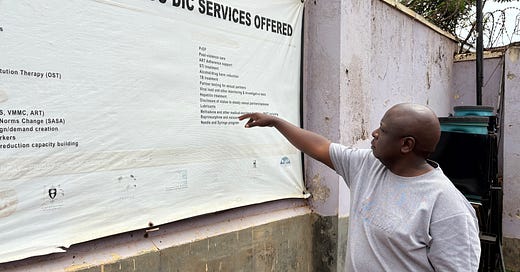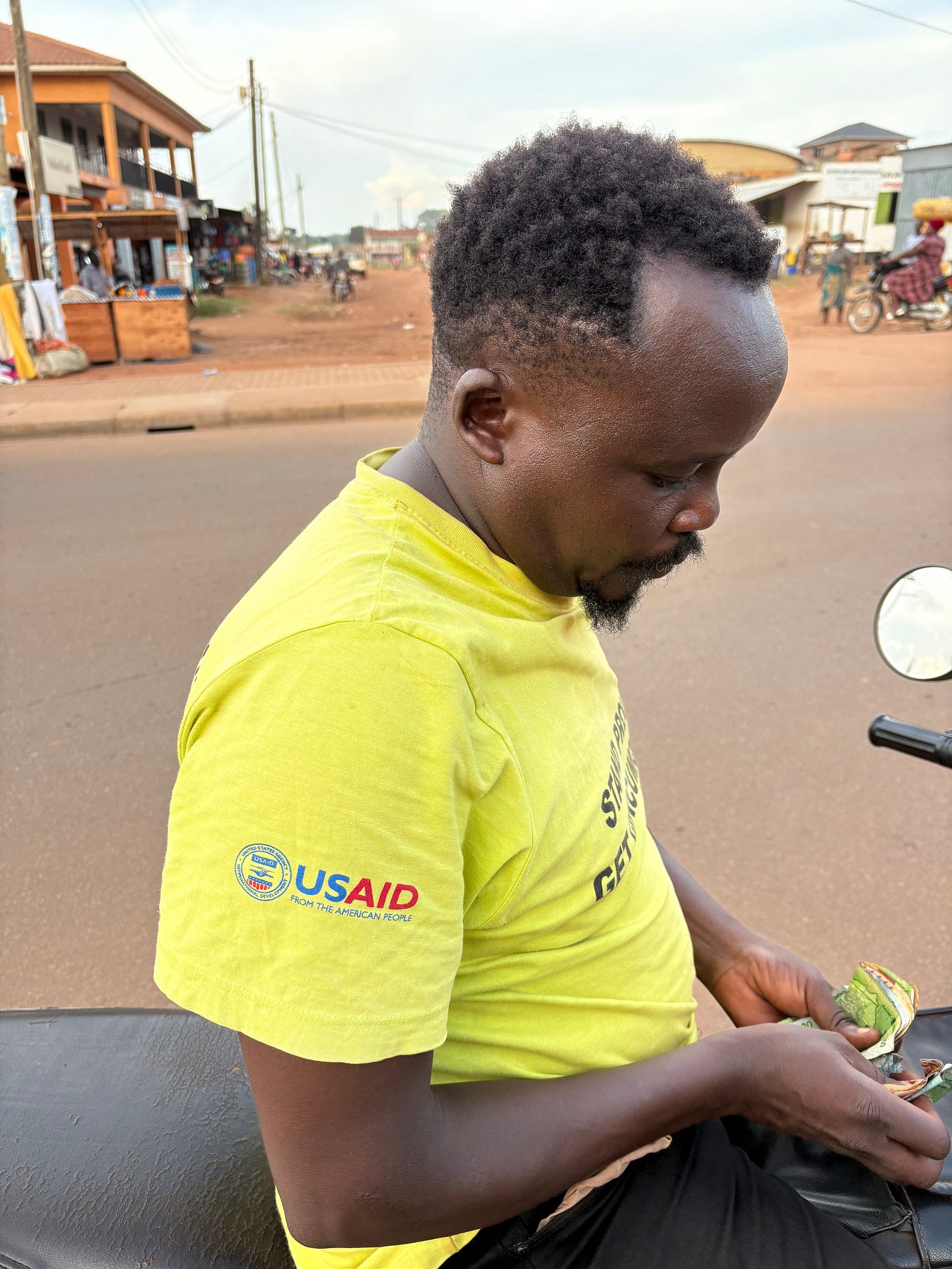Countdown
In Uganda, anxiety as the April 19 deadline for Trump to complete his review of foreign aid approaches
When you talk to the people running the organizations that sustain Uganda’s HIV response, April 19 has taken on a near-talismanic quality. This, they were promised, is the date by which the United States government will finish its review of foreign aid.
The Trump administration announced that audit on January 24, coupled with an order that any program Washington was supporting immediately stop work until the review was complete. It is difficult to convey how chaos-inducing this was.
The directive came late on a Friday in Uganda, which meant HIV clinics and drop-in centers whose staff thought they were just closing for the weekend have not reopened since. Dozens of people living with HIV told me they immediately assumed they were going to die.
Some services have theoretically resumed in some places, including life-saving HIV treatment. But many people are still struggling and remain convinced they will not survive “Trump’s order,” as it is known here in Uganda.
Among Uganda’s health workers, it is possible to detect some hope that April 19 will mark an end to a 90-day aberration. That the programs the Trump administration has suspended will be allowed to resume. That funding will be restored.
“We are a little optimistic that maybe they are going to give us a chance to continue serving the community,” Bosco Mukabba tells me. He helps to provide HIV services to dozens of sex workers in Masaka, a quiet town in southern Uganda, and the women clearly adore him for his warmth and playfulness. His default expression is a grin. He is exactly the kind of person who would hold space for a miracle.
It’s also basically all he has to hope for. The Ugandan government cannot fully replace America’s funding and is unlikely to use its limited resources to support sex workers, a community politicians are trying to further criminalize. And no other donor has ridden to the rescue.
Mukabba’s optimism is rare. Most people I talk to predict that April 19 will bring another kind of ending. That the Trump administration will finally, fully end U.S. support for the global HIV response. That would mean abandoning programs that have saved more than 25 million lives over the past two decades.
Raymond Kwesiga worked for the National Forum of People Living with HIV/AIDS Networks Uganda, a mouthful of a title that gets abbreviated to NAFOPHANU. Any campaign to improve the lives of people living with HIV in Uganda usually runs through this organization. And like anything to do with HIV in Uganda, it also drew money from the U.S. government.
That support is not just suspended. It is cancelled. Thousands of grants paid through the U.S. Agency for International Development have already been terminated during the ongoing review. NAFOPHANU’s was among them. Kwesiga expects that April 19 will not only confirm that the USAID money is gone, but reveal that other funds are, as well.
“We are not yet sure until the 90 days are done. That’s when we will be very sure that now we shall no longer get money,” he tells me.
And then there are the Ugandans who believe that April 19 doesn’t actually matter. As they see it, the critical date was January 24. It brought the revelation that they can no longer rely on American support, a message delivered in a way that seemed unnecessarily cruel.
Uganda Harm Reduction Network, or UHRN, runs the only clinic offering medically assisted therapy for people who inject drugs in Kampala, the country’s capital. In addition to the 700 clients who have gained access to methadone or other heroin replacement therapies since October 2020, UHRN has reached hundreds more with an array of HIV services.
Wamala Twaibu is the engine behind all of this. A former heroin user, himself, he has been relentlessly pushing efforts to decriminalize drug use and to improve treatment for people who use drugs in Uganda. These efforts are not without risk. He shows me the camera police officers have installed up the road from their office, its lens pointed directly at UHRN’s front gate.
Trump’s order abruptly shut down UHRN’s clinic. The staff received instructions to “stop immediately,” Twaibu recalls. “We’re wondering, what’s next? We have people in care. How do we stop?”
When hundreds of clients showed up on Saturday morning for their daily dose of methadone, the health workers had no choice but to turn them away. The staff did conspire, at least, to hand out HIV prevention and treatment drugs to people who risked running out during the 90-day review.
The clinic is one of the few that has since been granted a reprieve. It resumed services less than three weeks later. But by then, by Twaibu’s count, more than 200 clients had overdosed. They had not been able to withstand the horrors of the methadone withdrawal they had been plunged into by the Trump administration. At least three died. With so many clients injecting and no clean needles to distribute, new HIV infections are also certain to soar.
“Now we are having issues retaining those who are in care,” Twaibu tells me. “They are saying, now, [Washington is] going to review. What is going to happen on the 19th of April? It is a waste time going back to the treatment center. We are aware that within three months, the treatment could be no more.”







I know it goes without saying but this is just terrible. I feel horrible that my country is directly responsible for death and injustice for so many people.